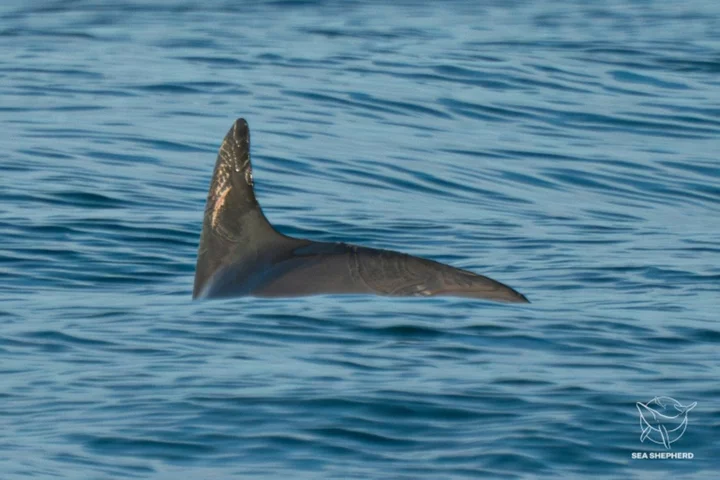The vaquita, a small porpoise on the verge of extinction, is still hanging in there, said scientists Wednesday who had spotted about a dozen specimens of Mexico's "panda of the sea" on an expedition in May.
The vaquita is the smallest of all porpoises, similar to dolphins but with shorter beaks and more rounded bodies.
They perish in nets used to illegally catch totoaba, large fish whose swim bladders -- organs used to control buoyancy -- are believed in China to hold medicinal powers.
Scientists conducting a survey of the vaquita's endemic range in the Gulf of California off Mexico's north coast -- spotted between 10 and 13 of the porpoises last month, they reported Wednesday.
"We estimated that the sightings included 1-2 calves and there was a 76 percent probability that the total number seen, including calves, was between 10 and 13 individuals," said a report issued by the NGO Sea Shepherd spearheading vaquita conservation efforts.
"Since the search was in a small portion of the vaquita's historical range, 10-13 is considered a minimum estimate of the number of vaquitas left," it added.
This was about the same number estimated in October 2021.
According to the latest report, all vaquitas sighted in May "appeared to be healthy."
The vaquita is considered the world's most threatened cetacean -- the group of whales, dolphins and porpoises.
Grey-colored porpoises, vaquitas are called "pandas of the sea" for the rings around their eyes.
They grow to about 55 kilograms (120 pounds) and 1.5 metres (five feet) in length.
Elusive by nature, the vaquita is difficult to observe, and little is known about their reproductive life and longevity.
Females are believed to have a single calf every two years or more, according to conservation group WWF.
Vaquitas drown when they get entangled in gillnets -- vertical sheets of netting used to catch fish -- and cannot surface to breathe.
First discovered as a species only in 1958, vaquita numbers plummeted by 92 percent from 1997 to 2005, according to scientists.
The vaquita is listed as "critically endangered" on the International Union for Conservation of Nature's Red List of threatened species -- the last category before extinction in the wild.
In 2019, UNESCO added the Gulf of California to its list of World Heritage in Danger due to fears of imminent vaquita extinction.
yug/axm/ll/mlr/md









